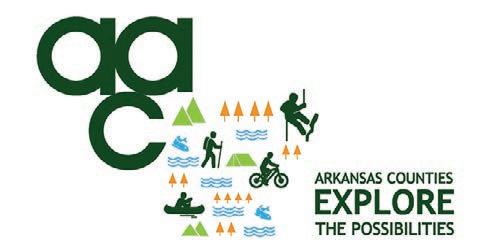
3 minute read
Governmental Affairs
Counties discuss common problems, reach solutions at continuing education meetings
Governmental Affairs
One thing I was not aware of when I arrived at the Association of Arkansas Counties was the importance of continuing education for county officials. I quickly came to realize that continuing education meetings are the cornerstone for collaborating county officials. One of my first weeks on the job, I was in Texarkana for the collectors’ continuing education meeting when multiple items were being discussed. One of the leading topics was regarding issues with how the state works with the counties — specifically the Department of Finance and Administration (DFA) working with the collectors through the Department of Motor Vehicles (DMV). This topic arose from a group discussion of multiple collectors who identified questions for DFA. The following week I set up a meeting with DFA, and we talked through the issues, and they answered our questions. This was a good example of officials collaborating to solve problems with the state.
The AAC works with Auditor of State Andrea Lea’s office to administer continuing education for the county clerks, circuit clerks, county treasurers, county collectors and county coroners. For many of these groups, the attendance has sky rocketed. More county officials coming together and working to solve problems for their county is always productive. One popular session that takes place at these meetings is a roundtable discussion or a Q&A with a panel of experts. We hear how productive and informative these sessions are on a regular basis from our evaluation forms.
Relationships and an open line of communication make you more accountable to your colleagues. The associations’ list servs are an electronic form of continuing education — and a line of communication that is always open. Some groups utilize the email chain very well, providing for an open dialog 24/7 for any elected official to ask questions of other counties. It is also great to see people highlighting the accomplishments of specific counties or seeing good news from the different offices.
Each county pays dues to the state in order to be a part of the continuing education meetings. These funds go toward paying mileage, hotel rooms, food and speakers. The appropriation for the current fiscal year is $60,000, which is included in the Auditor of State’s budget. Most of these groups have a relatively large carryforward balance they cannot use because of the appropriations limit of $60,000. During the Fiscal Session of the 90th General Assembly, the AAC worked with state Rep. Douglas House, vice chairman of the Joint Budget Committee, and Auditor Lea to increase the appropriation from $60,000 to $75,000. “One of my favorite aspects of being Auditor of State is the close partnership my office has with county officials. Working together, we are stronger public servants for the constituents we serve and at the end of the day that’s what matters most,” Auditor Lea said.
The new appropriation for the five continuing education groups is reflected in Act 237 of 2016, which takes effect July 1 of this year.
We have 75 different counties in Arkansas. They are different in size, population, employees and revenue. They all have the exact same goals and job duties, and they are governed by the same set of laws. How they achieve these goals and follow the law could vary from county to county. Benton County, with a population of more than 220,000, is completely different from Dallas County, with a population of less than 9,000. Just like in the private sector, a small company may offer the same product as a large company but accomplish the outcome in a different way.
“Caucus by County Classification,” a roundtable discussion we have during the continuing education meetings, is one way to accommodate for this among our various-sized counties. The goal of this caucus is to get counties with similar dynamics to talk about common problems and reach solutions together. I believe the more our counties are alike, the easier it is to improve efficiencies and streamline services together. One issue we always articulate to lawmakers is that a one-size-fits-all approach is not always best. This is similar to the federal government overstepping and imposing new rules and regulations on states. County officials who attend continuing education meetings are at the frontline of identifying problems and creating solutions.
Josh Curtis Governmental Affairs Director

48th ANNUAL CONFERENCE
Hot Springs Convention Center August 24-26, 2016 Turn to page 36 for details.



